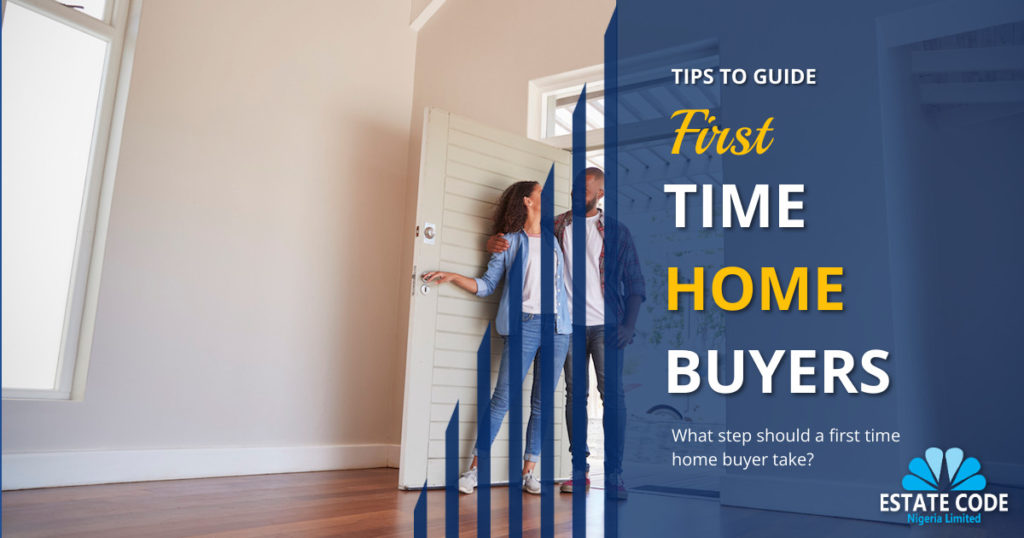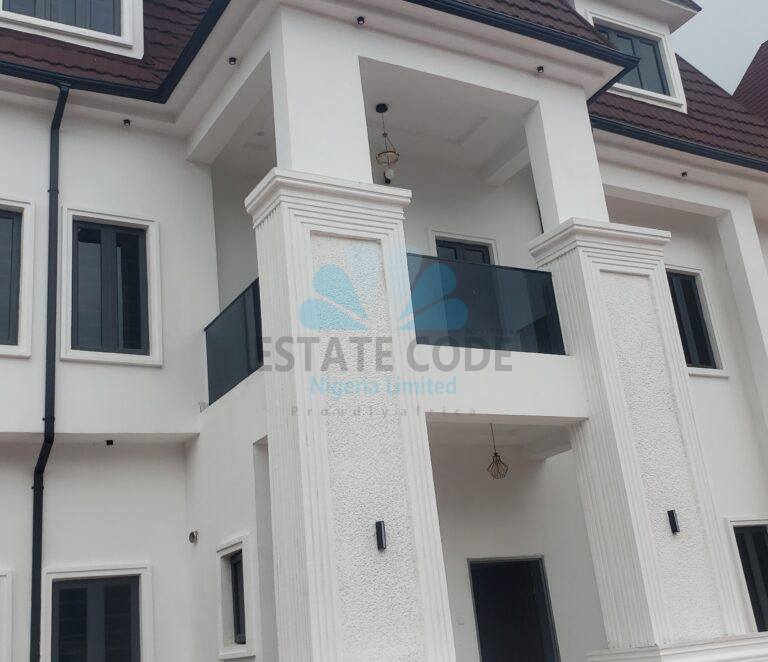TIPS TO GUIDE FIRST TIME HOME BUYERS

Buying your first home is exciting, but at the same time, it could be scary. With the median home price well over N80,000 000, it’s a big financial commitment. With more than one million people buying their first home each year, plenty of people obviously decide the commitment is worthwhile. Buying a home can be challenging for a first-timer. After all, there are so many steps, tasks, and requirements, and you must be anxious about making an expensive mistake. But first time home buyers actually enjoy some special advantages related to encourage new entrants into the real estate market.
Being a first home buyer has its difficulties: saving enough money for a down payment, making sure your credit score and finances are up to par, and of course, navigating the complicated housing market, which is currently more competitive than ever. To help you navigate your first home purchase, here is a rundown of what you need to consider before you buy, what you can expect from the buying process itself, and a bonus on tips to make life easier after you buy your first home.
Make sure that you are ready to buy
Buying a house is a major financial decision and a long-term commitment. Before you start shopping for a new home, be sure you are ready for the responsibilities that come with being a homeowner and the costs associated with buying and owning a house. Here are some questions you can ask yourself to help you determine whether you’re ready to buy a house;

Can you afford it?
The first thing to do when buying a home is to figure out how much house you can afford. But your income isn’t the only thing to look at; your existing debts also matter. Experts recommend the 28/36 rule: your mortgage payment shouldn’t be more than 28% of your monthly pre-tax income, and 36% of your total debt.
Another thing to take into consideration is the down payment. For most people, it takes a while to accumulate the down payment money, says personal finance expert and author, Eric Tyson. To get access to both vest terms, you’ll want to put down 20% of the purchase price, he says. That’s in addition to saving up funds for closing costs, moving expenses, and, ideally, having an emergency fund to cover a job loss or expensive home repair.
Which type of home will best suit your needs?
You have a number of options when purchasing a residential property: a bungalow, a self-contained, a duplex, etc. each option has its pros and cons, depending on your homeownership goals, so you need to decide which type of property will help you reach those goals.
Which specific features do you want your ideal home to have?
While it’s good to retain some flexibility in this list, you’re making perhaps the biggest purchase of your life, and you deserve to have that purchase for both your needs and wants as closely as possible. Your list should include basic desires, like the size and neighbourhood, all the way down to smaller details like bathroom layout and a kitchen fitted with durable appliances. Scanning real estate websites can help you get a sense of the pricing and availability of properties offering the features that are most important to you
Who will help you find a home and guide you through the purchase?
A decent estate agent will help you locate homes that meet your needs and are in your price range, then meet with you to view those homes. Once you’ve chosen a home to buy, these professionals can assist you in negotiating the entire purchase process, including making an offer and completing paperwork. A good real estate agent’s expertise can protect you from any pitfalls that you might encounter during the process. In Nigeria, most agents contracted by the buyer receive a commission from the buyer, while the seller agent’s paid from the seller’s proceeds.
Make sure that you are ready to buy
Now that you’ve got everything lined up, it’s time for the fun part: house hunting. Your real agent will line up showings for you, but you should have an idea of what you want and your budget beforehand. Make a wish list and prioritize it, Glink says. After knowing what you want, you prepare a list of the features you want in the house, the things you absolutely can’t live without. Going over this list with your agent will help you assess different properties, you don’t want to waste your time looking at homes that don’t meet your needs.
Once you’ve narrowed down your choices to “the one”, it’s time to make an offer. This is where you should really lean on a real estate agent. While you’ll want your offer to be affordable to you, it will also need to be competitive. Because we’re in a seller’s market, buyers might have to change their expectations and be more open to compromise when negotiating, Glink says.

Your offer should include an offer price, deadline for the buyer to respond (usually within 24 to 28 hours) and any contingencies you want to request. At a minimum, the offer should include appraisal and home inspection contingencies, which means that if the home appraises lower than the price you offered or an inspection turns up significant issues, you can walk away from the deal without losing your deposit. A real estate agent can help with the offer letter.
Complete the final walk-through and close on the home
Once a seller accepts your offer, it’s time to finalize the deal and get the keys to your new home. Closing is when the buyer and seller sign all the necessary paperwork and the money changes hands. The specifics of what needs to be done at the final closing, and who handles each step, varies.
Before you sign the dotted line, you should complete a final walk-through with your agent. This should be done as close to the final closing as possible, often at the same time. During the final walk-through, make sure everything is there that’s supposed to be there and there is no damage to the property, says Tyson. He emphasized that this is especially important if the property was vacant beforehand. If appliances are missing or something needs to be fixed or repaired, you want the seller to take care of it before you take ownership of the home.
Now that you know what it takes to buy your first home, avoid the mistakes made by first time home buyers. Follow the guides carefully to get your dream home. For further help on how to get your home without stress, you can always contact me opeyemi@estatecode.ng or connect with my company, Estate Code Nigeria Ltd on +234 701 1111 4640. Don’t forget to get in touch with us, whenever you need a reliable agent to assist you in your home buying process, whether you’re buying a property in Nigeria or abroad.


